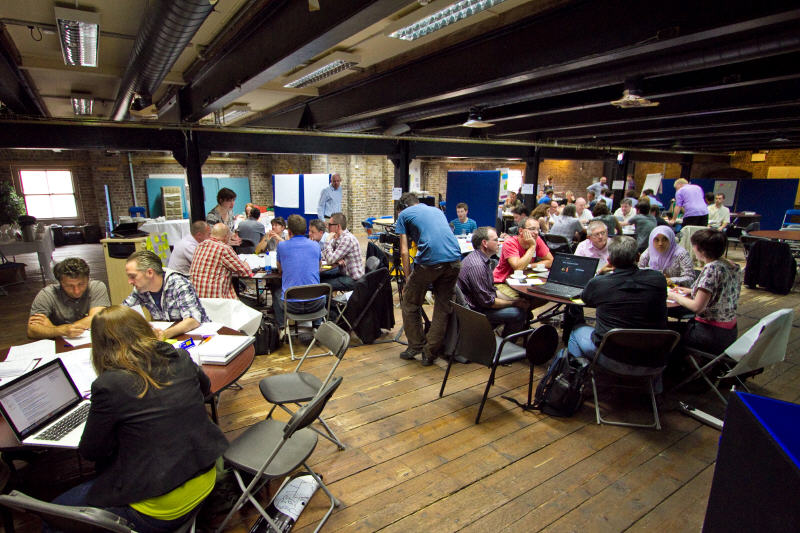The open data movement in Ireland has begun later than many other countries, and for this reason alone I have the uncomfortable feeling its proponents here will have to fight that bit harder to get their points across. The key here is momentum.
When I first got familiar with this movement – which centres on taking data sets hitherto locked away from the public and turning them into useful products and services for the greater good – it clicked with me and I resolved to encourage it as best I could. Especially since the ‘revolution’ began later here in Ireland than anywhere else.
It will only work, however, if more noise and momentum is created. By noise I mean communication, by momentum I mean continuing with imaginative ways of getting the public themselves to unlock data and create exportable products and services.
Organisations like the IIA, which made open data a key component of its recent annual conference, the NDRC, which hosted the Open Data Challenge recently, as well as Enterprise Ireland and Microsoft have all in their ways signalled an important moment in the history of technology in Ireland. But like most pivotal moments in technology, if it’s not understood by the public it will just fade into the background.
During the week, the country’s first Open Data Challenge was held at the NDRC over a marathon 18-hour session where 80 designers, programmers and entrepreneurs banded together to create products out of open data sets provided by Fingal County Council and Dublin City Council.
Twenty-eight ideas centring around useful apps and online services for citizens were whittled down to nine projects and the teams got to work.
The overall winner to emerge was BizFit, a website that utilises demographic and other open-source data to match a business with its optimum location. The winning idea was judged as being a clear example of how the release of previously inaccessible Government data can deliver a nascent commercial opportunity.
Deirdre Ni Raghallaigh of Dublin City Council said: “BizFit used open data to create a website that will help a business owner decide on a best fit location for their business. We think it’s a great idea that could really help stimulate business development on a county-by-county basis.”
The runners-up were Just Park, an app that uses open data to help define cost-effective and convenient parking based on location, and Distil, a tool that enables developers to refine, purify and filter open data.
The judging included Microsoft Ireland, the Science Gallery, local councils and the Irish Internet Association, the event saw more than 80 developers, designers and entrepreneurs compete to create viable business ideas.
Dublin City Council and Microsoft sponsored the event, providing cash prizes €4,000 (first prize); €2,000 (second prize) and €1,000 (third prize). In addition, the NDRC’s Inventorium programmes will provide the winning teams with mentoring and commercialisation support. All teams are invited to apply and pitch to the LaunchPad programme.
Speaking about the event, Dr Teresa Dillon, of NDRC’s Inventorium programme and a member of Enterprise Ireland’s National Cross Industry Working Group on Open Data said: “It’s clear that with the right tools and freer access to data, there is the potential for ideas-led business growth. We hope an initiative such as this sends a message to other councils and Government bodies that open data is a resource and as such it has economic potential.”
The economic potential of open data – running deeper
Nurturing that economic potential means seizing every available opportunity. As the Chinese strategist Sun Tzu pointed out: “Opportunities multiply as they are seized.”
For this reason, I think that if 80 people and traditional bodies like city and county councils are enthusiastic to dedicate time and effort to a new phase of technology, then we are onto something.
But it needs to be real and understood by the public.
At the IIA event in May, IBM’s Constantin Gurdgiev pointed out the possibilities of creating products and services that resonate with home owners, for example, but could drive real economic benefits. He suggested analytical tools that you could put on your iPhone or Android smartphone that could tell you what your home’s water and energy consumption is likely to be in coming months. Brilliant!
There is an opportunity to do something worthy in parallel.
Irish schoolchildren are being turned into consumers of IT rather than creators. We need more coders. There is coding talent in Irish schools, some of them are begging school principals to create coding classes. Just watch this video interview with teenager James Whelton from Cork to see what I’m talking about.
Why not bring the open data movement to the schools? Get young minds thinking products and services. Let them be entrepreneurial. Let them build and hack for the greater good.
The open data movement has potential, but it needs to keep momentum.
Photo: Mark Kearns, judging panel, NDRC; Conor Calahane, National Centre for Geocomputation; Robb Micthell, Telecosy; Anja Jentzsch, Freie Universität Berlin; Gary Leeson, Romhaire Research; Udo Reubach and Sandra Garcia, CLARITY
